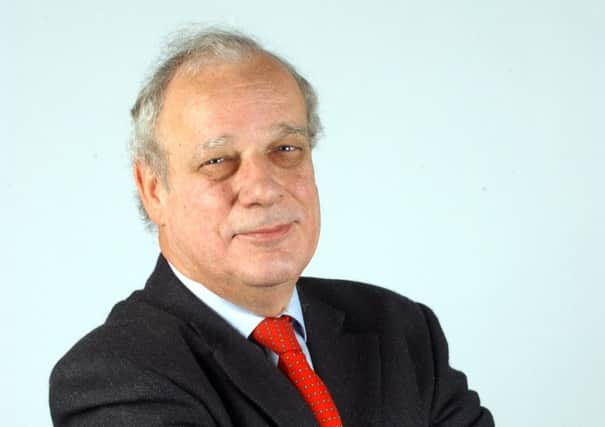Comment: Future shock as guru gets out crystal ball


He is Jim Mellon, and on Friday he gave a well-honed presentation in Edinburgh that could have passed for one of the 3,000 Fringe events were it not so discreet. It was held at the venerable New Club to an audience comprising clients of irrepressible independent financial adviser Alan Steel in striped Henley Regatta jacket.
But however well-heeled, the audience may have felt distinctly down at heel after hearing of Mellon’s impressive investment record at a youthful-looking 58. We soon lost count of the numerous countries in which he had properties: remarkable for a man whose hobby, inspired by a photograph of a 1960s Edinburgh bus, is a collection of seven conductor ticket machines he amassed from website purchases. It felt, as global stock market tumbled while the presentation unfolded, that used bus tickets were all we might be left with.
Advertisement
Hide AdAdvertisement
Hide AdMellon’s focus is futurology. His message is that we should be investing in this Fast Forward future – the mind-boggling tumult of change that lies a few years ahead. And investors should be getting in early. This is the world just round the corner of driverless cars, giant strides in robotics, stunning advances in medical science and people alive today who will live to 120. At the rear of the room there was a small commotion. It may have been the flapping blinds on the New Club windows, or the pension fund actuary at Scottish Widows gently keeling over.
It is good that our minds are stretched to the huge scale of change ahead and the investment implications of a world where the price of oil remains low and where technology can cut building a house from six to seven months to a couple of weeks.
But long before the end of the presentation, an unsettling ennui has set in. How can we change our own retirement portfolios and begin to select the new tech shooting stars from the new world flops?
It is bad enough coming to grips with the investment universe and the funds and trusts we have some acquaintance with. It is already akin to putting out buckets in a desert and constantly re-arranging them in the hope of catching miserly raindrops.
But this is change of a different order of magnitude – and risk. As Jim Mellon comes to a close troubling doubts have set in. “Don’t follow the theme just because it’s popular” is an early Mellon admonition. But how do we know this is not just another fashionable theme? The US, he says, has fixed its banking system, is great at innovation, very flexible and adaptable – but Wall Street is “priced to perfection”. Even when we overcome these doubts, where are the new investment buckets to capture this growth? Buckets preferably without holes in them. And how do arrange them to optimal effect?
Mellon’s big break came from a timely investment in UraMin, a uranium extraction company. Such buckets are not widely available and at the least require formidable knowledge and research.
And it isn’t all upbeat news. As automation spreads, low-skilled jobs will disappear. Futurist and technology inventor Ray Kurzweil warns that once artificial intelligence surpasses human intelligence (a point known as the singularity and expected by around 2045), it is curtains for the human race. At this point, superior intelligence would continuously redesign itself to be ever-more intelligent, rendering us humans redundant. Even portfolio investment may become little more than a series of algorithms and pre-programmed adjustments to market behaviour: even the Henley Regatta jacket may be on a shoogly peg.
Currently Mellon rates German property as the best available hedge, and Japan as the most attractive stock market – still half the level it was 26 years ago.
Advertisement
Hide AdAdvertisement
Hide AdHis investment favourites are Japanese robotics firm Fanuc Corporation, Hewlett-Packard, Hellenic Petroleum and German industrial robotics group Kuka. Meanwhile, avoid Apple, Raven Russia, the S&P 500 and negative-yielding bonds.
Stepping later into Princes Street, I dodged a tram. Whether it’s this, or the driverless car, I had a queasy feeling that change is going to run us over all the same.